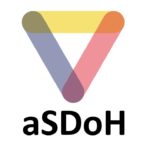Adverse social determinants of health (aSDoH), such as housing and food insecurity, are strongly associated with healthcare utilization and health outcomes. The goal of our work is to identify and address aSDoH in an efficient and scalable way to address social needs, reduce disparities in care, and improve health outcomes. Our current projects focus around understanding neighborhood and spatial risk, evaluating and developing directories of community resources, and identification of social risk and social need. In addition, we have ongoing work to respond to the COVID-19 pandemic including projects to:
(1) Provide an updated directory of food resources in our community,
(2) Identify disparities in measured prevalence and outcomes of COVID-19 patients,
(3) Establish the impact of COVID-19 infection on subsequent ED and hospital utilization, and
(4) Model impact of crisis standards of care strategies on disparities populations.
For more information, please see below or contact Dr. Maggie Samuels-Kalow.

Additional information about current projects
Visualization Linking Emergency Needs and Services (VLENS) aims to enable the visualization of community resources, hospital utilization, and social determinants of health/predicted need.
Click here to view a video overview of the project.
The goal of this study was to pilot TEACH, a text-message based questionnaire to identify adverse social determinants of health (aSDoH) and automatically provide resources.
ECOCH was a comparative examination of two social need and risk screening strategies in the ED. Using a mixed-methods approach, ED patients were recruited at a large urban academic medical center and randomized to verbal vs. electronic modalities following informed consent.
While the MEDS intervention is efficacious when delivered by a research assistant, we lack data on its effectiveness in routine clinical practice. The goals of MEDS 2 are to establish the effectiveness of the MEDS intervention as delivered by ED staff and determine the factors associated with successful implementation of the intervention
